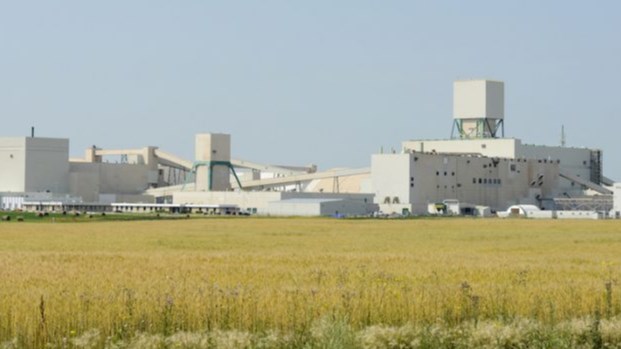Nutrien (TSX: NTR; NYSE: NTR), the world’s largest potash producer, is indefinitely pausing plans for ramping-up output and will also halt work on its clean ammonia project at Geismar, La., in response to market conditions.
The U.S.-based company had aimed to boost potash output capacity to 18 million tonnes, but “unprecedented volatility” over the last year and a half forced it to change plans, president and CEO Ken Seitz said.
“We continue to see demand strengthen in our key markets, in particular North America; however the process of recovery has been more uneven in offshore markets,” Seitz said during a call to discuss second-quarter results.
Potash prices have been depressed after the resumption of shipments from top producer Belarus. Exports from the country, however, remain below the levels before Russia’s invasion of Ukraine.
Nutrien noted it has also been at the port of Vancouver, which is the main hub through which it exports its fertilizer products. It cut production at its Cory Potash mine in Saskatchewan, and said it expected its full-year profit to take a hit from lower exports.
The International Longshore and Warehouse Union sa国际传媒 concludes the two-day vote at 6 p.m. local time on Friday, after an uncertain period that included a 13-day shutdown in July of more than 30 port terminals and other sites.
Nutrien, as expected, posted this week earnings of $1 billion and adjusted EBITDA of $3.9 billion in the first half of the year, down 79% and 49%, respectively, when compared to the same period of 2022.
“It could take several more weeks until the backlog is cleared and the supply chain returns to normal,” Jeff Tarsi, executive vice-president and president of global retail said on the conference call. He noted this resulted in a lower estimate for global potash shipments in 2023, to a range of 63 to 65 million tonnes.
The company is also lowering capital expenditures by about $200 million this year to $2.8 billion, and targeting a $100-million reduction in expenses.
Nutrien shares were up 2.9% at mid-day on Friday in Toronto to $88.75 apiece, valuing the company at $43.8 billion. Its shares traded in a 52-week window of $70.68 and $132.75.



